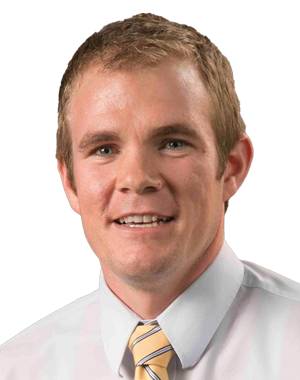Pre Conference // MONDAY - 13 JANUARY
Roundtable on the "Missing Middle": The Value of Solution Providers in the Geospatial Value Chain
The geospatial value chain, from data collection to impact, is delivered through three key links: the Beginning (data providers), the Middle (commercial solution providers and value-add intermediaries), and the End (users of products in applications and interactions like marketing and providing feedback). Each link performs unique functions that together transform raw data into powerful, sector-specific solutions.
At the foundation of this chain, data providers—such as federal agencies like the U.S. Geological Survey (USGS)—produce and distribute high-quality, openly available geospatial data available in a variety of forms and products . These products serve as the backbone for countless applications, but they are often further developed into innovative solutions. In the Middle link, solution providers step in as a crucial bridge between data providers and users, converting open data products into tailored, commercially viable solutions and new business models. These intermediaries process, analyze, and integrate public geospatial data to create refined products, filling a role that federal agencies are often “missing” in their understanding of the value chain. For agencies like the USGS, this lack of visibility into the intermediaries' transformative work results in an incomplete understanding of how public data is leveraged and adapted for market demands. As a result, the true value of the source data is underestimated.
The End link encompasses a broad range of end-users who rely on these specialized solutions to drive decision-making, enhance operational efficiency, and solve real-world challenges across sectors like agriculture, urban planning, logistics, and natural resources. Each link in this chain is essential, but the Middle link—where raw data evolves into market-ready products—holds untapped potential for growth and collaboration.
To bridge this gap, this roundtable will bring together commercial solution providers, technology experts, industry leaders, and representatives from USGS and other government agencies. This dialogue will uncover insights and document narratives capturing how federal data is utilized, refined, and adapted in the private sector throughout the lifecycle of the geospatial value chain, highlighting opportunities for agencies to better understand ways to support and empower these vital intermediaries.
Key objectives include
The primary objective of this 2-hour roundtable is to facilitate an open dialogue that helps USGS and other federal agencies gain insights into the Middle solution provider link and its unique role in the geospatial data ecosystem. Key goals include:
Speakers

Tyler Svitak
Executive Director
Colorado Smart Cities Alliance

Narendra Babu Vattem
CEO
iSpatial Techno Solutions (IST) Inc

William Morgenstern
Head, Global Geospatial Collection Operations
Tech Mahindra

Chris Surbey
Consultant
Spatial Strategies

Dave Dionne
Chief Strategy Officer
Merkator